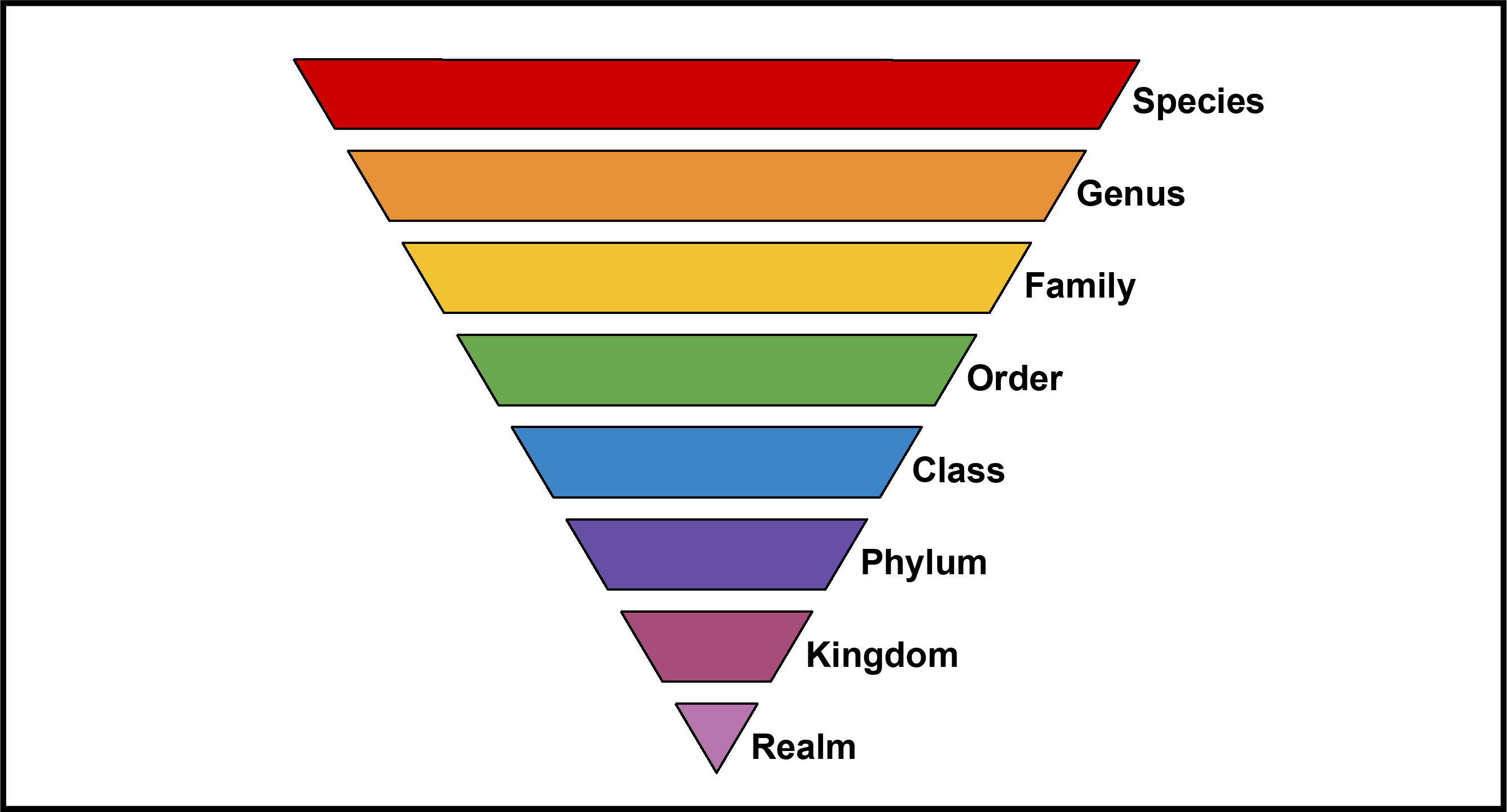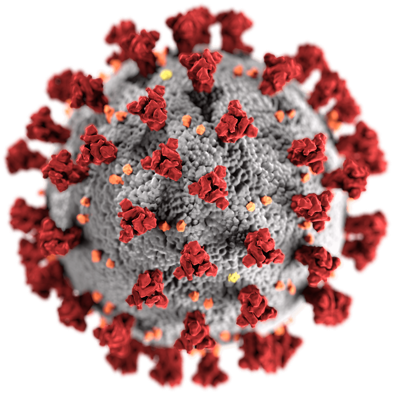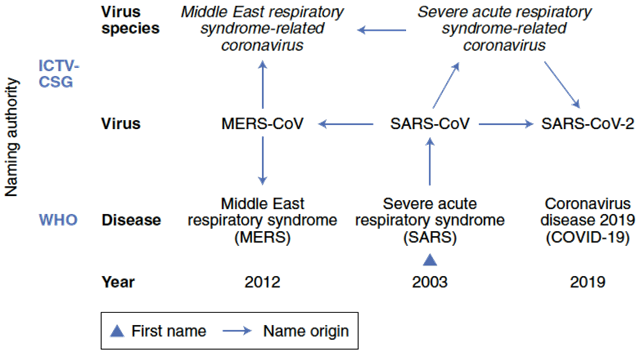News stories posted in 2020
ICTV Executive Committee 2020 - 2023
|
Name |
Affiliation |
Residence |
|
President |
||
|
Federal University of Viçosa |
Brazil |
|
Vice-President |
||
|
University of Bristol |
Germany |
|
Business Secretary |
||
|
National Science Foundation |
USA |
|
Data Secretary |
||
|
University of Alabama at Birmingham |
USA |
|
Proposals Secretary |
||
|
University of Queensland |
Australia |
| Subcommittee Chairs | ||
|
Arizona State University |
USA |
|
National Institute of Allergy and Infectious Diseases |
USA |
|
University of Oxford |
UK |
|
Quadram Institute |
UK |
|
Institut Pasteur |
France |
|
Mississippi State University |
USA |
|
National Research Council of Italy |
Italy |
|
Elected Members |
||
|
Federal University of Viçosa |
Brazil |
|
Utrecht University |
Netherlands |
|
National University of La Plata |
Argentina |
|
Charité – Berlin University of Medicine |
Germany |
|
Centers for Disease Control and Prevention |
USA |
|
Polish Academy of Sciences |
Poland |
|
University of Helsinki |
Finland |
|
Okayama University |
Japan |
|
University of Glasgow |
UK |
|
University of Arizona |
USA |
|
KU Leuven |
Belgium |
We want to thank the significant contributions of EC members whose terms have now ended and will therefore be rotating off of the committee: Andrew Davison, Balázs Harrach, Bob Harrison, Nick Knowles, and Max Nibert. Their service has been invaluable to the work of the ICTV, and in particular, we have greatly valued their collegiality.
Plenary Session 2020
| The ICTV Executive Committee holds a Plenary Session meeting every three years during the IUMS International Congress of Virology. This session is designed to update virologists on the work of the ICTV and to fulfill our statutory requirements to present taxonomic changes implemented since the last Plenary Session. Since the IUMS Congress will be held virtually this year, the ICTV Plenary Session has been replaced by a Plenary Session Report from the ICTV Executive Committee. |
What’s the point of virus taxonomy?
| Stuart Siddell (ICTV Vice President) and Andrew Davison (ICTV President) discuss the importance of virus taxonomy, classification, and naming in this International Science Council blog post. |
#ShutDownAcademia, #ShutDownSTEM, and #Strike4BlackLives
On June 10, 2020 The ICTV demonstrated its support for #ShutDownAcademia, #ShutDownSTEM, and #Strike4BlackLives and showed its solidarity with Black Lives Matter by taking down our web site and redirecting everyone's attention to resources that provide information about systemic racism in Education, Science, and Society, to help each one of us educate ourselves and help to end the injustice.
Please visit these sites for more information:
- #ShutDownAcademia; #ShutDownSTEM
- AAAS CEO Statement on #ShutDownSTEM and Black Lives Matter
- ASM Calls for Equality and Unity
- 500 Women Scientists Take Action
Virus taxonomy finds its roots

For some time, the classification of viruses by virus taxonomists has been focused on the grouping of relatively closely related viruses, often in the context of a paradigm that emphasizes the rapid evolution of viruses that cause disease in man, crops and animals. However, more recently, shotgun metagenomic sequencing has revealed the presence of a vast variety of viruses in environmental samples and apparently healthy organisms from all divisions of life. As a result of these advances, the International Committee on Taxonomy of Viruses (ICTV) has come to recognize that virus taxonomy can now be usefully extended to include the basal evolutionary relationships among distantly related viruses. Consequently, the ICTV has changed its Code to allow a fifteen-rank classification hierarchy that closely aligns with the Linnaean taxonomic system. This new structure can accommodate the entire spectrum of genetic divergence in the virosphere. We also predict that this new rank hierarchy will stimulate further research on virus origins and evolution and help to align virus taxonomy with the taxonomies of cellular organisms. This change has been recently reported in Nature Microbiology article (Nature Microbiology 5, 668–674 (2020)
ICTV Taxonomy Release #35: 2019
The new 2019 ICTV taxonomy is now available online at https://ictv.global/taxonomy, and the new Master Species List #35 is available for download as an Excel Spreadsheet.
This new release contains taxonomic changes approved by the ICTV membership in March, 2020. This release contains 4 realms, 9 kingdoms, 16 phyla, 2 subphyla, 36 classes, 55 orders, 8 suborders, 168 families, 103 subfamilies, 1421 genera, 68 subgenera, and 6590 species.
A paper describing this release has been published in the Virology Division News section of Archives of Virology:
Changes to virus taxonomy and the Statutes ratified by the International Committee on Taxonomy of Viruses (2020).
Walker PJ, Siddell SG, Lefkowitz EJ, Mushegian AR, Adriaenssens EM, Dempsey DM, Dutilh BE, Harrach B, Harrison RL, Hendrickson RC, Junglen S, Knowles NJ, Kropinski AM, Krupovic M, Kuhn JH, Nibert M, Orton RJ, Rubino L, Sabanadzovic S, Simmonds P, Smith DB, Varsani A, Zerbini FM, Davison AJ.
Arch Virol. 2020 Nov;165(11):2737-2748. doi: 10.1007/s00705-020-04752-x. PMID: 32816125.
Binomial Nomenclature for Species Names
The article, "Binomial nomenclature for virus species: a consultation" has now been published in Archives of Virology:
http://link.springer.com/article/10.1007/s00705-019-04477-6
Comments and further discussion on the topics raised in the article discussed in the Binomial Species Name forum.
Files pertinent to this discussion can be found at https://ictv.global/files/info?fid=437.
Submit Your Taxonomy Proposal for 2020
New taxonomy proposals for 2020 can now be submitted. Templates for submitting proposals are available from https://ictv.global/proposal_templates/. These 2020 templates MUST be used for all submissions. Please download all four files and read the Help file for detailed information on the submission process.
The deadline for proposal submission to Subcommittee Chairs is July 31, 2020.
Ratification of the 2019 Taxonomy is underway
The process of ratifying the next update to the ICTV taxonomy is underway. ICTV Members (consisting of Executive Committee (EC) Members, Subcommittee Members, Study Group Chairs, Life Members, and National Members) are currently voting to ratify the proposals discussed and approved by the EC during its 51st meeting in July, 2019 in Berlin.
Copies of the proposals under consideration can be found at https://ictv.global/ratification/.
Copies of proposals to be considered at the next meeting of the EC can be found under Pending Proposals.
ICTV Elections
This fall, the ICTV will elect members of the Executive Committee. The positions available are those of President, Vice-President, Data Secretary, Proposals Secretary, and eleven Elected Members. The process is described in section 4.3 of the ICTV Statutes. If you wish to recommend someone for nomination, please send an email with the necessary documentation (see section 4.3.1) to [email protected] by 3 August 2020.
Naming the 2019 Coronavirus
|
The virus causing the current outbreak of coronavirus disease has been named "severe acute respiratory syndrome coronavirus 2" (SARS-CoV-2). The manuscript describing the name also reports the work of the ICTV Coronaviridae Study Group (ICTV-CSG) that determined the virus belongs to the existing species, Severe acute respiratory syndrome-related coronavirus. |
The International Committee on Taxonomy of Viruses (ICTV) is concerned with the designation and naming of virus taxa (i.e. species, genus, family, etc.) rather than the designation of virus common names or disease names. For an outbreak of a new viral disease, there are three names to be decided: the disease, the virus and the species. The World Health Organization (WHO) is responsible for the first, expert virologists for the second, the ICTV for the third.
WHO guidelines for naming of new human diseases can be found at "WHO issues best practices for naming new human infectious diseases" and "WHO Best Practices for the Naming of New Human Infectious Diseases" The following article may also be of interest:
"Naming diseases: First do no harm"
As experts on coronaviruses, the ICTV Coronaviridae Study Group has studied the classification (taxonomy) of the new virus. And given that they are experts on this family of viruses, they have also contributed their expertise to the naming of the virus. The virus name is "severe acute respiratory syndrome coronavirus 2" (SARS-CoV-2). And the species to which the virus SARS-CoV-2 belongs is Severe acute respiratory syndrome-related coronavirus.
The disease name (which in many cases is different from the virus name) has been designated as COVID-19 by the WHO. The '19' in COVID-19 stands for the year, 2019, that the virus was first seen. The number '19' has nothing whatsoever to do with virus strains, genotypes, or anything else related to the virus' genetics. The virus name was announced by the World Health Organization on February 11, 2020. See the February 11 World Health Organization Situation Report. This clearly states that "WHO has named the disease COVID-19, short for 'coronavirus disease 2019'.”



